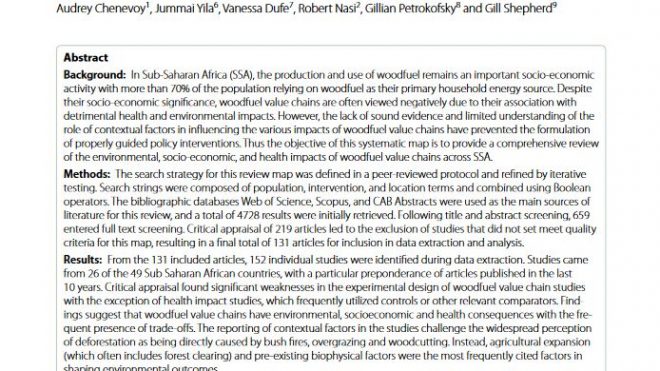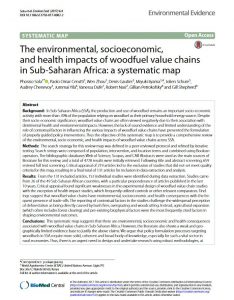In sub-Saharan Africa (SSA), the production and use of wood fuel remains an important socio-economic activity with more than 70% of the population relying on wood fuel as their primary household energy source. Despite their socio-economic significance, wood fuel value chains are often viewed negatively due to their association with detrimental health and environmental impacts. However, the lack of sound evidence and limited understanding of the role of contextual factors in influencing the various impacts of wood fuel value chains have prevented the formulation of properly guided policy interventions. Thus, the objective of this systematic map is to provide a comprehensive review of the environmental, socio-economic and health impacts of wood fuel value chains across SSA.
From the 131 included articles, 152 individual studies were identified during data extraction. Studies came from 26 of the 49 sub-Saharan African countries, with a particular preponderance of articles published in the last 10 years. Critical appraisal found significant weaknesses in the experimental design of wood fuel value chain studies with the exception of health impact studies, which frequently utilised controls or other relevant comparators. Findings suggest that wood fuel value chains have environmental, socio-economic and health consequences with the frequent presence of trade-offs. The reporting of contextual factors in the studies challenge the widespread perception of deforestation as being directly caused by bush fires, overgrazing and woodcutting. Instead, agricultural expansion (which often includes forest clearing) and pre-existing biophysical factors were the most frequently cited factors in shaping environmental outcomes.
Region: Africa
Date published:
2017
Published by:
Environmental Evidence
Type of resource:
Journal article
Resource topic:
Wood fuel
Project/Programme: Not specific
Pest/Disease: Not specific
Pages:
16
File type:
External link (1,194 KB)




